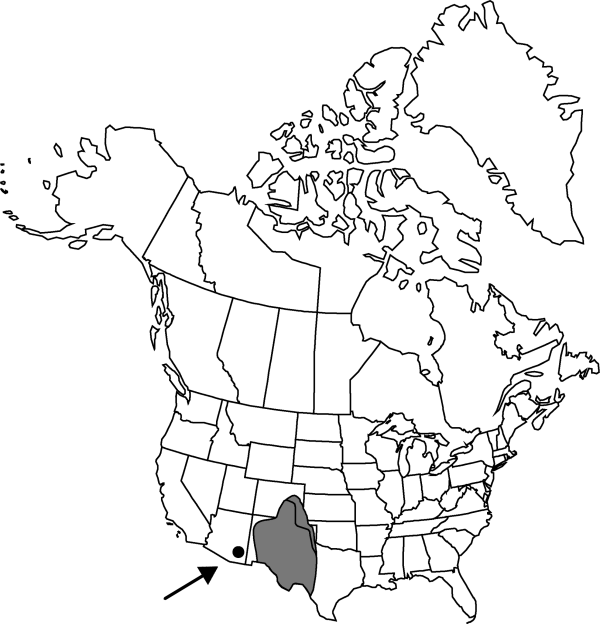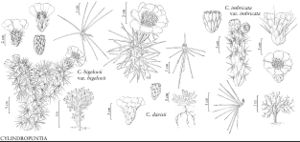Difference between revisions of "Cylindropuntia imbricata var. imbricata"
imported>Volume Importer |
imported>Volume Importer |
||
| Line 58: | Line 58: | ||
|publication year= | |publication year= | ||
|special status=Illustrated | |special status=Illustrated | ||
| − | |source xml=https:// | + | |source xml=https://bitbucket.org/aafc-mbb/fna-data-curation/src/2e0870ddd59836b60bcf96646a41e87ea5a5943a/coarse_grained_fna_xml/V4/V4_213.xml |
|subfamily=Cactaceae subfam. Opuntioideae | |subfamily=Cactaceae subfam. Opuntioideae | ||
|genus=Cylindropuntia | |genus=Cylindropuntia | ||
Latest revision as of 21:57, 5 November 2020
Trees, with short trunks, openly branched, 3(–5) m. Stem segments 12–40 cm; tubercles widely spaced. Spines and sheaths usually tan to dirty white or ± yello, sometimes absent. 2n = 22.
Phenology: Flowering spring–summer (May–Aug).
Habitat: Deserts, grasslands, pinyon-juniper woodlands, hills, plains
Elevation: (800-)1100-1800(-2200) m
Distribution

Ariz., Colo., Kans., N.Mex., Okla., Tex., Mexico (Chihuahua, Coahuila, Durango, Nuevo León, San Luis Potosí, Tamaulipas, Zacatecas).
Discussion
A dominant cholla of the Chihuahuan Desert, Cylindropuntia imbricata var. imbricata is wide- ranging and variable in several characters; it is generally shorter and more spiny northward (there often referred to as Opuntia arborescens). The species appears to be spreading northeastward in Oklahoma and Kansas as a result of cattle ranching activities. In Arizona, New Mexico, and Mexico, var. imbricata intergrades with C. spinosior. Northward, var. imbricata hybridizes with C. whipplei (= C. ×viridiflora).
Selected References
None.
